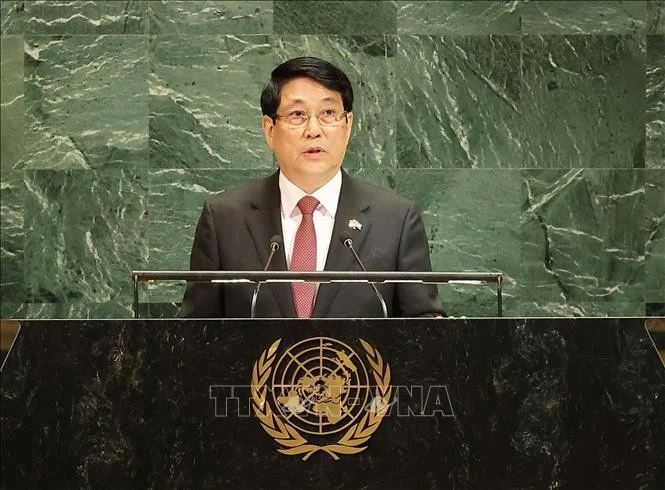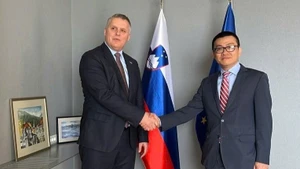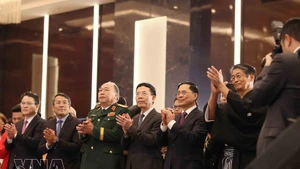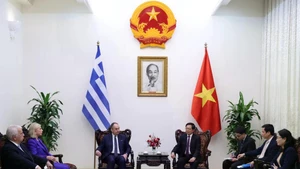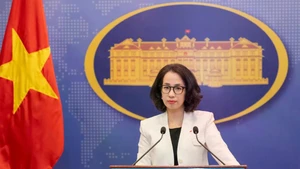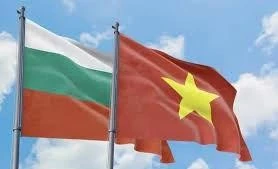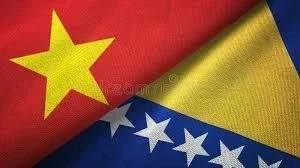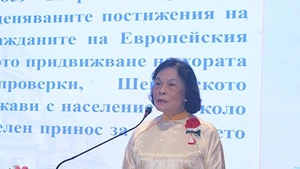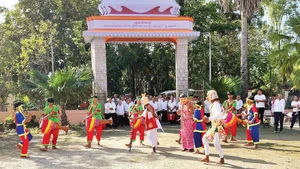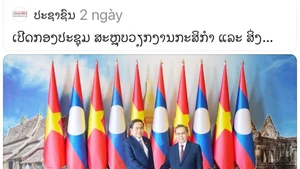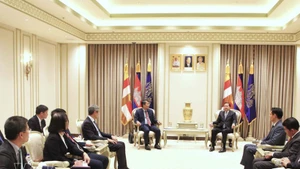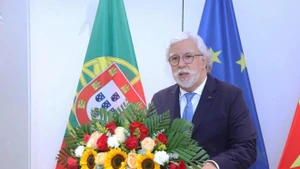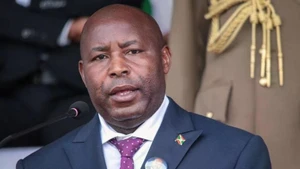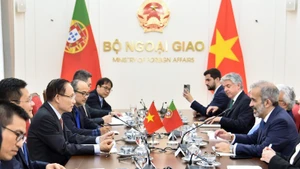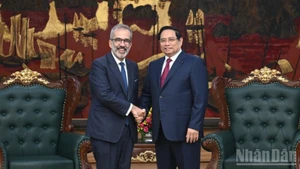The Vietnamese leader affirmed that over the past 80 years, the UN has embodied mankind’s shared aspiration for peace, cooperation, and development, based on universal values of human rights, national independence, equality, democracy, and social progress. However, he noted that the world today faces unprecedented challenges, including conflicts, localised wars, arms races, the use of force or threat of force, strategic competition among powers, unilateralism, and a sharp decline in political commitment and resources.
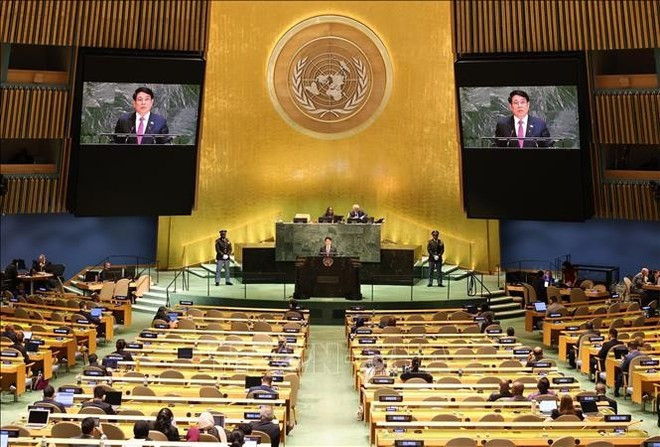
President Cuong called on the international community to uphold multilateralism and the international legal-based system, with the UN playing a central role.
Affirming that peace is both a goal and a prerequisite for building a stable, just, democratic, and prosperous future, he urged countries to adhere to international law and the UN Charter; respect independence, sovereignty, and territorial integrity; refrain from interfering in internal affairs; avoid the use of force or threat of force; and resolve disputes through peaceful measures.
Emphasising a culture of peace through trust-building, international solidarity, dialogue, and respect for differences, he called for ceasefires, an end to violence, the protection of civilians, and unhindered humanitarian access in conflict zones. He welcomed the recognition of the State of Palestine by many countries, urged urgent humanitarian assistance for the Palestinian people, and proposed that the US lift its sanctions on Cuba and remove the country from the list of state sponsors of terrorism.
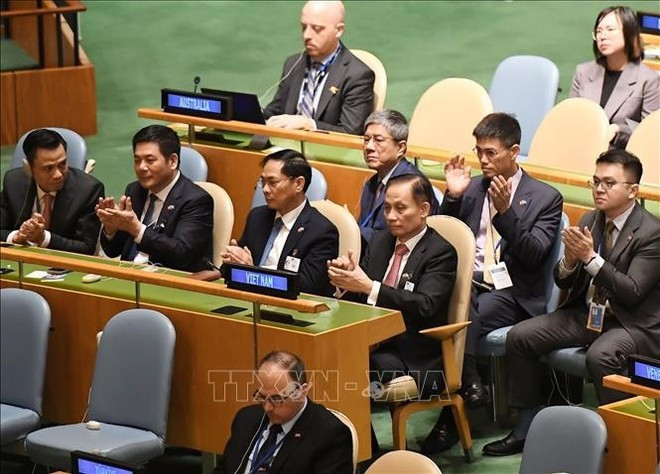
President Cuong underscored the role of regional organisations, with ASEAN at the centre of the Asia-Pacific, in actively building a resilient, inclusive, and sustainable ASEAN Community; promoting the ceasefire agreement between Cambodia and Thailand; implementing the Five-Point Consensus on Myanmar, and maintaining peace, stability, security, safety, and freedom of navigation and aviation in the East Sea based on international law, including the 1982 UN Convention on the Law of the Sea (UNCLOS).
To build a sustainable future, the Vietnamese President called for reforming multilateral institutions for global governance, especially the UN and international financial and monetary bodies, to enhance adaptability, ensure fairness and transparency, operate in a coordinated, effective, and efficient manner, and better meet the needs of countries and people worldwide.
President Cuong stressed that to optimise sustainable development based on digital and green transformation, countries must formulate comprehensive strategies, invest strongly in research and development, train high-quality human resources, and develop green technology infrastructure. He underlined the need to enhance international cooperation in technology transfer and mobilisation of green finance, with developed nations sharing and transferring technology to developing and least-developed countries. People must remain at the centre of the social transformation process, he added.
Sharing Viet Nam’s story of recovery from war devastation and economic hardship to becoming a developing country with middle-income status and deep international integration, he shared Viet Nam’s strategic goals of becoming a developing nation with modern industry and upper-middle income by 2030, a high-income country by 2045, achieving the Sustainable Development Goals, and reaching net-zero emissions by 2050.
Viet Nam spares no effort to join hands with all nations to shoulder common responsibilities, overcome challenges, and promote transformative changes for a peaceful, stable, prosperous, and sustainable world.
On this occasion, the Vietnamese state leader invited countries to Ha Noi for the signing ceremony of the UN Convention against Cybercrime on October 25. He noted that Viet Nam is actively preparing to assume the role of Chair of the 2026 Review Conference of the Parties to the Treaty on the Non-Proliferation of Nuclear Weapons. He also called for support for Viet Nam’s candidacy to the UN Human Rights Council (2026–2028) and for a judge position at the International Tribunal for the Law of the Sea (2026–2036).
